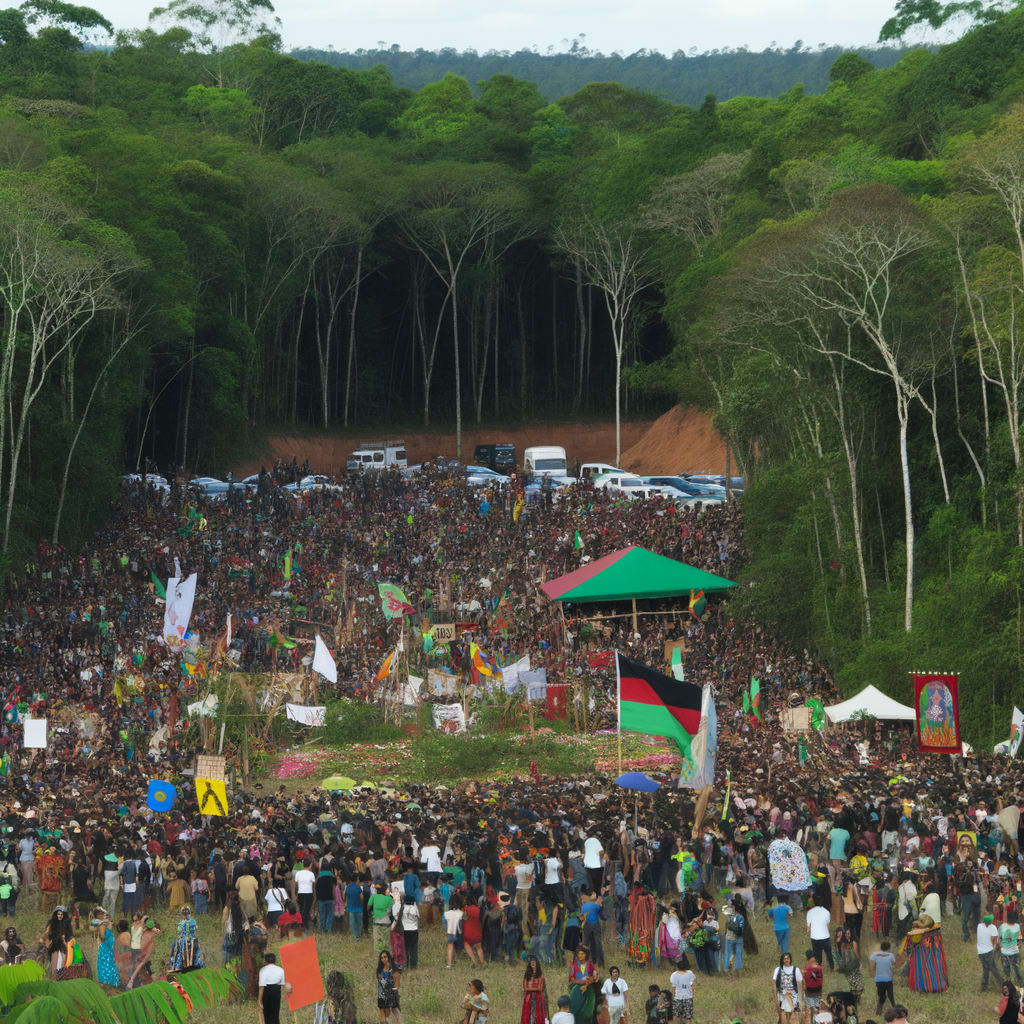Thousands Protest for Climate Action at UN’s COP30 Climate Summit in Belém, Brazil
As the United Nations climate conference, COP30, reaches the halfway mark, thousands of protesters, including a significant representation of indigenous people, marched through the streets of Belém, Brazil, demanding climate justice and greater environmental protection. The protests, which were a parallel activity to the UN's meeting, were marked by innovative elements such as giant coffins symbolizing the 'funeral' of fossil fuels, people dressed as animals, and an 'activist snake' as part of the march.
Background and Context
This year's COP30, held in the Amazon city of Belém, has seen the first mass protest outside the annual climate talks since 2021, signaling the escalating urgency of the climate crisis. However, the conference has been criticized by NGOs who claim that children, the primary victims of climate emergencies, have been absent in these crucial debates.
Key Developments
The Global March for Climate, organized by civil society entities, gathered around 70,000 people to demand climate justice, according to the People's Summit, a social movement event taking place alongside the UN conference. The march saw indigenous people mixing with activists in a festive atmosphere, complete with music, a giant beach ball of Earth, and a flag of Brazil emblazoned with the words “Protected Amazon”. Activists were calling for an exit from fossil fuels and a stop to deforestation.
In a more dramatic turn of events, dozens of Indigenous protesters managed to force their way into the COP30 climate summit venue, clashing with security guards at the entrance. They demanded climate action and forest protection, waving flags with slogans calling for land rights and carrying signs that read: “Our land is not for sale”.
Implications and Reactions
These protests demonstrate the rising global sentiment for immediate and decisive action against climate change. Ambassador André Corrêa do Lago, president of COP30, acknowledged that protests are a common occurrence in a democratic country, but noted that there were some excesses, without specifying whether these were related to the event security or the protesters.
The protesters' demands, particularly those from Indigenous communities, highlight the urgency of protecting the Amazon rainforest, which is often referred to as the 'lungs of the world'. Young African activists present at the conference also emphasized the need for climate funding, political inclusion, and justice for communities hardest hit by the climate crisis.
Current Status
As the COP30 conference continues, the world watches closely to see how the global community will respond to these demands and whether the political will exists among states to phase out fossil fuels, as protesters are insisting. Despite the phenomenal growth of solar and wind energies since the Paris Climate Agreement in 2015, coal, oil, and gas remain dominant, raising questions about the reality of the 'energy transition'.
Despite the intense heat, humidity, and loud protests, the resilient spirit of the Amazonian rainforest was embodied in the city of Belém and the thousands of protesters who took to the streets to ensure their voices were heard at this crucial global summit.

